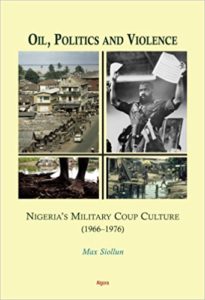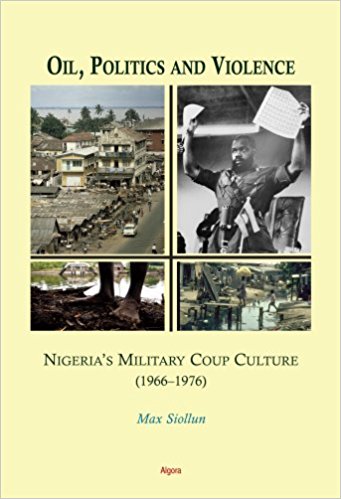 An insider traces the details of hope and ambition gone wrong in the Giant of Africa, Nigeria, Africa’s most populous country. When it gained independence from Britain in 1960, hopes were high that, with mineral wealth and over 140 million people, the most educated workforce in Africa, Nigeria would become Africa’s first superpower and a stabilizing democratic influence in the region.
An insider traces the details of hope and ambition gone wrong in the Giant of Africa, Nigeria, Africa’s most populous country. When it gained independence from Britain in 1960, hopes were high that, with mineral wealth and over 140 million people, the most educated workforce in Africa, Nigeria would become Africa’s first superpower and a stabilizing democratic influence in the region.
However, these lofty hopes were soon dashed and the country lumbered from crisis to crisis, with the democratic government eventually being overthrown in a violent military coup in January 1966. From 1966 until 1999, the army held onto power almost uninterrupted under a succession of increasingly authoritarian military governments and army coups. Military coups and military rule (which began as an emergency aberration) became a seemingly permanent feature of Nigerian politics.
The author names names, and explores how British influence aggravated indigenous rivalries. He shows how various factions in the military were able to hold onto power and resist civil and international pressure for democratic governance by exploiting the country’s oil wealth and ethnic divisions to its advantage.
Africa is featured in the headlines as developed countries and China clash over the need for the continent’s resources. Yet there are few serious books to help us understand any aspect of the never-ending cascade of wars and conflicts. Other titles on Nigeria are mostly children’s books or travel guides. The current work focuses specifically on the social tensions, the motivations and the methods of the series of coups that rent Nigeria.

